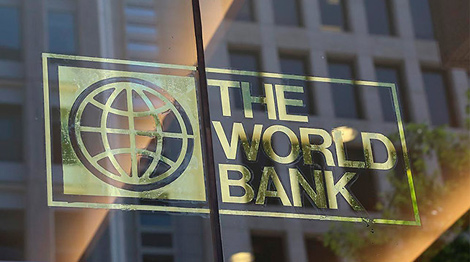Business news
World Bank endorses 2018-2022 Country Partnership Framework for Belarus
 MINSK, 3 April (BelTA) – On 3 April the World Bank Group Board of Executive Directors endorsed the 2018-2022 Country Partnership Framework (CPF) for the Republic of Belarus, which aims to support sustainable and inclusive growth and improve living standards in the country, BelTA learned from the World Bank Office in Belarus.
MINSK, 3 April (BelTA) – On 3 April the World Bank Group Board of Executive Directors endorsed the 2018-2022 Country Partnership Framework (CPF) for the Republic of Belarus, which aims to support sustainable and inclusive growth and improve living standards in the country, BelTA learned from the World Bank Office in Belarus.
“A sustained improvement in living standards in Belarus requires structural transformation, with a greater role for market forces and stronger targeted social programs. The World Bank Group wants ordinary Belarusians to have better lives. That means more private sector jobs, modern skills and healthcare, and infrastructure which contributes to the economy and the environment,” said Alex Kremer, World Bank Country Manager for Belarus.
The strategy is fully aligned with Belarus’ social and economic development program for 2016–2020, and is based on the findings and recommendations of the 2018 World Bank Systematic Country Diagnostic for Belarus (SCD). In the next five years, the World Bank Group’s assistance to Belarus will be concentrated in three areas: creating opportunities for the private sector to grow and for more efficient public investment; maintaining the country’s human capital edge by improving learning environments in education and the delivery of health services; improving the contribution of infrastructure to economic growth, climate change management, and human development.
The strategy has been developed through extensive consultations with government authorities, business associations, civil society organizations, development partners, academia and beneficiaries. During the CPF consultation many people said that transparency of information, the use of impact data, and public-private dialogue could improve decision-making.
The CPF is a joint strategy of the International Bank for Reconstruction and Development (IBRD), International Finance Corporation (IFC), and Multilateral Investment Guarantee Agency (MIGA).
“Boosting private sector investments is core to IFC’s strategy in Belarus,” said Jason Pellmar, IFC Regional Manager for Belarus, Moldova and Ukraine. “During the course of this next strategy period, IFC will continue to support Belarus to improve its business environment, promote competition and increase private sector participation throughout the economy.”
Since the Republic of Belarus joined the World Bank in 1992, lending commitments to the country have totaled $1.7 billion. In addition, grant financing totaling $31 million has been provided, including to programs involving civil society partners. The active investment lending portfolio financed by the World Bank in Belarus includes eight operations totaling $789 million.







 print version
print version make home page
make home page add to bookmarks
add to bookmarks

